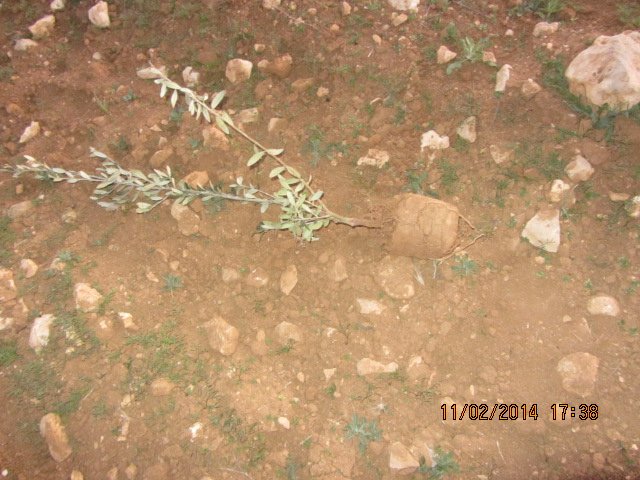Tag: Olive Trees
-
Palestinian activists successfully plant 100 olive trees in fields targeted by settlers in South Hebron Hills
15th February 2014 | Operation Dove | Susiya, Occupied Palestine On February 15th, 2014, more than 60 Palestinian men, women and children from the South Hebron Hills and city of Hebron gathered in the Palestinian village of Susiya and together with international and Israeli activists, participated in a nonviolent action organized by the South Hebron…
-
Eighty young olive trees uprooted in South Hebron Hills
14th February 2014 | Operation Dove | At Tuwani, Occupied Palestine On the afternoon of February 11, Palestinians discovered about eighty olive trees uprooted alongside bypass road 317 near the Susiya junction in the South Hebron Hills. The olive tree grove belongs to the Hushiya family from the nearby town of Yatta and had been…
-
Israeli forces protect settlers as they cut down Palestinian family’s trees
12 February, 2014 | International Solidarity Movement, Khalil Team | Hebron, Occupied Palestine On the afternoon of February 11, 2014, settlers in the Tel Rumeida neighborhood of Al-Khalil (Hebron) cut down trees belonging to the Abu Eisheh family. While attempting to film the destruction of the trees, four human rights activists were arrested by Israeli…



